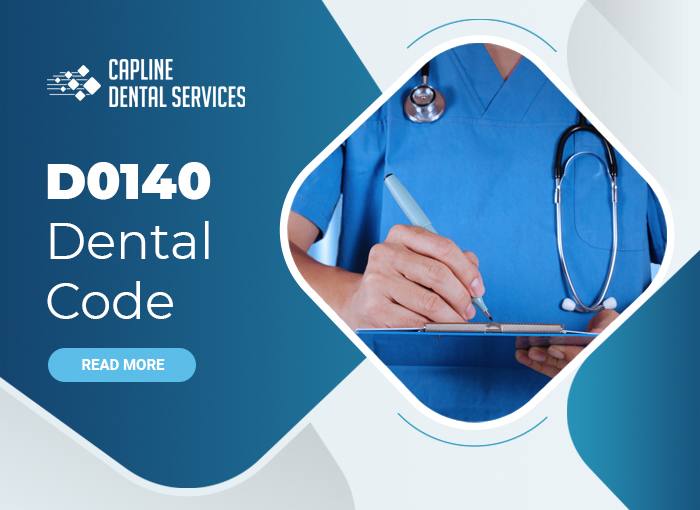
To accurately report sensitive dental data, dental services, and procedures to dental benefits plans, the American Dental Association (ADA) maintains a set of codes known as Current Dental Terminology (CDT). These codes include descriptions, as well as guidelines.
In this blog, we are going to discuss the D0140 dental code. The CDT D0140 Dental Code is a digital dental code that helps with the identification and tracking of dental products. It is easy to use and makes it easier for customers to find the right dental product for their needs. Additionally, the code can help to prevent fraud and ensure that only genuine products are being used.
The dental code D0140 is an examination that focuses solely on addressing one particular oral health issue or complaint. Because of this, there is a possibility that additional diagnostic procedures will require the gathering and interpretation of information. Include a separate report for any additional diagnostic procedures.
On the same day as the evaluation, there is a chance that definitive procedures will need to be carried out. Patients who receive this type of evaluation usually suffer from a specific problem and/or dental emergencies, such as trauma, acute infections, or other similar conditions.
The rule of one or a maximum of two evaluations per year applies to the D0140 evaluation code. At the time of an emergency visit, you can consider filing a D9110 report for any minor non-definitive procedures that you had done to alleviate any discomfort, sensitivity, or pain.
The D9110 code is a procedure code, so it won't be used in conjunction with any of the exam limitations. The UCR (Usual Customary and Reasonable) for this palliative code is higher than that for D0140.
In conclusion, the CDT D0140 Dental Code is a digital dental code that helps with the identification and tracking of dental products. It is easy to use, making it a valuable tool for dentists and patients. If you are planning to opt for the D0140 dental code, then do discuss this with your dentist beforehand!